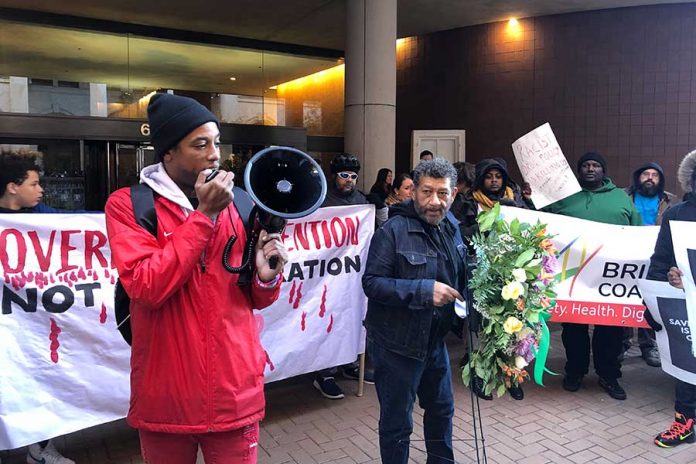On Tuesday, U.S. District Judge Gerald McHugh ruled that Safehouse, a nonprofit that plans to open an overdose prevention site (OPS) in Philadelphia, is not in violation of federal drug law, reaffirming his October 2019 decision.
In February 2019, U.S. Attorney William Mcswain filed suit claiming that a safe injection site violated a section of the Controlled Substances Act, called the “crack house statute.” The statute deems it illegal for a person to knowingly open or manage a location in order to fabricate, distribute or use controlled substances.
McHugh declared that nothing about Safehouse’s efforts would pose a procedural breach, as its ultimate goal is to reduce illegal drug use, and Safehouse wouldn’t be concealing drugs. The Tuesday ruling gave Safehouse the official go-ahead to open a facility in Philadelphia, the first U.S. location where people could use illegal opioids under medical supervision. McSwain immediately vowed to appeal McHugh’s decision.
In a news conference on Wednesday, Safehouse officials announced plans to open a safe consumption site in South Philadelphia.
The City of Philadelphia will not operate an OPS, but city officials are willing to provide additional services in support of this ruling, and will also facilitate service requests from residents who live near an OPS, according to a press release on Feb. 25.
“It is important to remember that these sites are — first and foremost — about saving lives,” Mayor Kenney said in the release. “Experts estimate an OPS in Philadelphia could save 24-76 lives a year. They provide a venue so that public health professionals can connect individuals to drug treatment and other vital support services.”
Roughly 100 supervised consumption sites exist worldwide, largely in Europe and Australia. The first OPS in North America opened in Vancouver, Canada in 2003.
LGBTQ-centered organizations have long been involved in Philadelphia’s Safehouse debate, particularly at the intersections of HIV/AIDS advocacy. In December 2019, representatives from ACT UP Philadelphia, AIDS United, Angels in Motion and Friends of Safehouse made their opinions known outside Independence Mall and rallied outside the office of McSwain.
Some participants entered McSwain’s office with the intention of giving him a funeral wreath, golden urn and letters from people who experienced addiction conveying the need for an OPS. At that time, McSwain told Safehouse’s attorney that he would use all legal enforcement resources in order to shut down an OPS and arrest its users.
“I am overjoyed and relieved that after two years of fighting for a simple method of stopping fentanyl overdose deaths we can finally begin to save lives,” said José de Marco, organizer for ACT UP. “We have a mayor and health commissioner that realize every life is precious and worth saving. In addition, [being able to] offer immediate referrals to drug treatment programs, medical and social services … reduces public injection and discarded used syringes on the street.”
“In the last three years, I have lost two friends under the age of 30 to a drug overdose,” said Julian Domanico, LGBTQ+ advocate and queer man of color, who is a committeeperson representative for the Gayborhood, board secretary of the Delaware Valley Legacy Fund (DVLF) and afterschool programming director for Public Health Management Corporation’s Project Leading Youth for Tomorrow.
“The cyclical punitive system of confine, rehab in isolation and discard has not worked. Mayor Kenney, his administration, and Philadelphia’s District Attorney’s Office are leading the nation in compassionate, progressive ideas on how we care for and talk about the disease of addiction. This Safehouse legislation is a positive step toward helping people kick their habit and, most importantly, save lives.”
Christina Kallas-Saritsoglou, co-founder and manager of Philly AIDS Thrift, said, “”I think safe injection sites will have a positive impact in many ways — decreasing overdose-related deaths, reducing the spread of HIV and Hep C, and increasing the likelihood that folks will enter into rehab and recovery, all things our community can benefit from.”
Philly Aids Thrift awarded Safehouse one of its 26 grants earlier this year.
Leaders in local government condone McHugh’s ruling and the forthcoming implementation of Safehouse’s OPS.
“We are gratified with the court’s ruling that it is legal to operate an overdose prevention site that helps those who are addicted to opioids get into drug treatment and keeps them alive until they start treatment,” Dr. Thomas Farley said in a press release. Farley is commissioner of the Philadelphia Department of Public Health. “We intend to support Safehouse as it moves toward opening a site in Philadelphia.”
